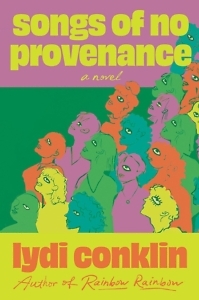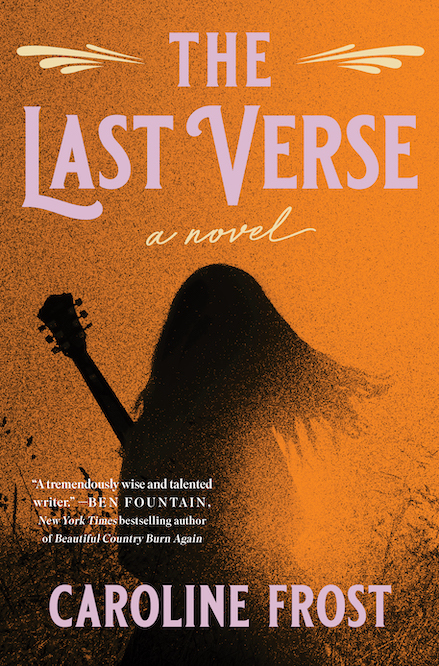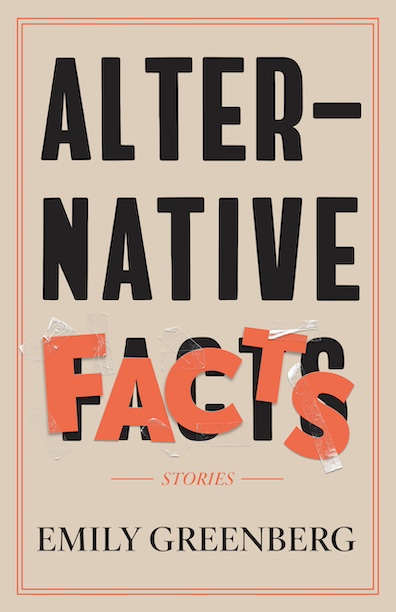Stage Antics and Self-Reckoning
Lydi Conklin’s debut novel is as tender as it is unruly
It feels unfair to begin a review of Lydi Conklin’s debut novel Songs of No Provenance by saying it won’t be for everyone. But the aspects of the book that may turn off some folks are probably the reasons they should pick it up.

It must be said that there’s a lot of pee in this book. The main character, Joan Vole, is working through many complex parts of being an underground musician who’s known as much for her antics as her music, and the entire narrative is built around an over-the-top subversive act done onstage (involving pee) that causes her to flee to teach a summer class at a remote college. But it’s the work she does to understand her own behavior that gives readers a reason to stick with the story.
As in Conklin’s 2022 story collection Rainbow, Rainbow, the characters in this novel aren’t neat and tidy. In one moment you might question whether a character like Vole is an egomaniac, and in the next you see the character panicked about whether they’ve taken accountability, and most importantly, you see them as being worthy of love through all of it. You feel a tenderness toward Vole despite those antics, and maybe in some ways because of them.
At one point, Vole attempts to teach a small group of students how to write songs “without origin” — how to separate the lyrics from themselves. She explains to her students why the character in one song called “Rail Rat Done Wrong Tonight” might appeal to listeners over a broad time period:
“It’s his personality,” Vole says to her students. “It’s that we love him, right from the start, so we don’t care that he’s awful. Or we care, and we like it because we want that freedom too. Freedom from, I don’t know. The grief of life? Morality?”
What she doesn’t relay to the students but thinks in that moment is that “making a mess was the ultimate freedom of the moment. You had to so thoroughly inhabit your enjoyment that you forgot the stain and stink of the next minute. She wanted the kids jazzed up, like she’d been. Not necessarily pissing on the carpet, but feeling the way a song could carry them away on its back.”
 The part of the narrative about peeing primes the reader’s brain to immediately feel the level of shame and pain Vole might feel after her shocking behavior onstage. There are portions of the book where Conklin is so effective at drawing us into the scene that we can’t help but feel a little uncomfortable, like when the vivid details of an outdoor courtyard all of a sudden lead to the character peeing outside. The tension between empathy and discomfort can be slightly disorienting, but the effect is powerful. You don’t question why this musician might run to the woods to teach and leave her phone behind in fear of witnessing a viral moment with herself at the center. A lot of narrative setup needs to happen for a modern musician and a cohort of teenagers to have limited media access, but Conklin expertly works that angle by using lapses in the campus rules on tech to reveal to Vole what actually is happening outside of the place where she ran to hide.
The part of the narrative about peeing primes the reader’s brain to immediately feel the level of shame and pain Vole might feel after her shocking behavior onstage. There are portions of the book where Conklin is so effective at drawing us into the scene that we can’t help but feel a little uncomfortable, like when the vivid details of an outdoor courtyard all of a sudden lead to the character peeing outside. The tension between empathy and discomfort can be slightly disorienting, but the effect is powerful. You don’t question why this musician might run to the woods to teach and leave her phone behind in fear of witnessing a viral moment with herself at the center. A lot of narrative setup needs to happen for a modern musician and a cohort of teenagers to have limited media access, but Conklin expertly works that angle by using lapses in the campus rules on tech to reveal to Vole what actually is happening outside of the place where she ran to hide.
Near the end of the book, a character named Sparrow — an artist and teacher on campus who is also working through their own image and gender issues — responds to Vole’s revelation that she felt confused about her gender and the connections she’d made with others: “‘That’s cool,’ Sparrow said, the words so clear and easy they worked all the way through Joan, breaking up her muscles and relaxing them to goo. ‘There’s always more to figure out.’”
Sparrow’s acceptance of Vole helps answer or at least clarify a few questions for the reader: Why do some feel shame over every transgression while others charge around like bulls in a china shop? What would it mean to feel open to sharing our complex inner person more outwardly? How much of what any person is doing reflects what’s going on in their head?
The book itself ends up falling into songs-without-origin territory: You may never imagine yourself peeing on a person, but there’s so much here you can connect to every human experience. Songs of No Provenance makes you want to root for all versions of all of those people, including Vole, as long as they’re on their way to finding out the full spectrum of who they are.

Amanda Haggard is a freelance writer, editor, and journalist living in Nashville. For the past decade, she’s written about homelessness, books, music, politics, food, and everything in between. She is the co-editor of Nashville’s street newspaper The Contributor.


